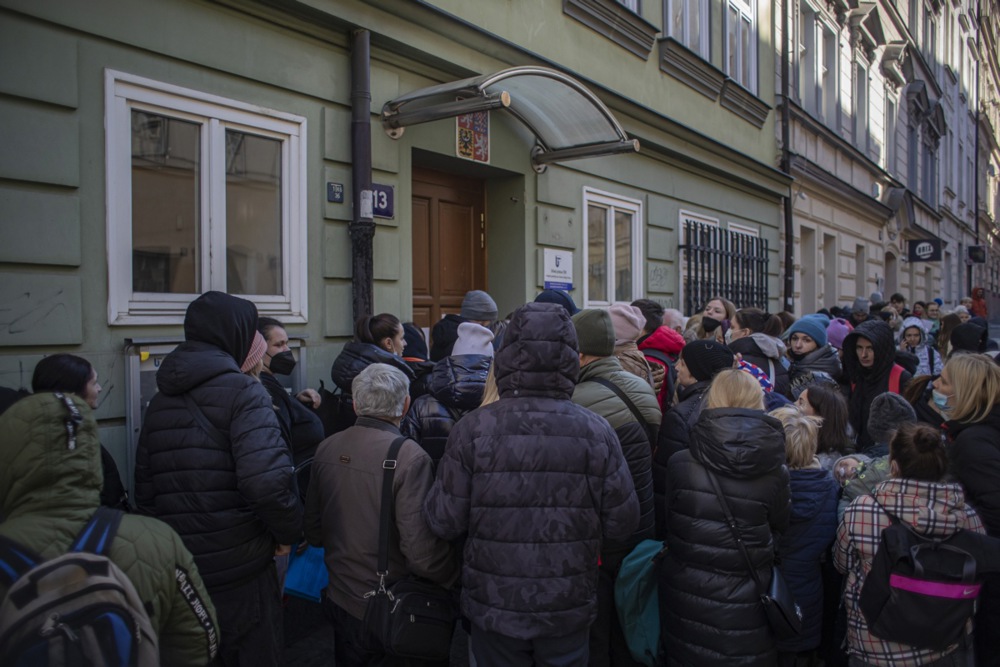European Commission President Ursula von der Leyen has offered Turkish President Recep Tayyip Erdoğan €1 billion in support to help Syrian refugees.
After a meeting in Ankara between von der Leyen and Erdoğan on December 17, where they spoke about the uncertain situation in Syria following the fall of the Bashar al-Assad regime on December 7, both signalled they wanted a sovereign and prosperous Syria.
Von der Leyen said Turkey was to receive an extra €1 billion from European Union funds to “contribute to migration and border management, including voluntary returns of Syrian refugees”.
She referred to Turkey a key partner on migration and said that the economic relationship between the country and the EU “is growing stronger every year”.
The ???? relationship is important.
Our economic relationship is growing stronger every year.
And Türkiye remain a key partner on migration.
An extra €1 billion for 2024 is on its way to support Türkiye’s efforts to host Syrian refugees. pic.twitter.com/cr3Tfaz7l9
— Ursula von der Leyen (@vonderleyen) December 17, 2024
According to von der Leyen, Turkey has a significant role to play in maintaining regional peace following the overthrow of Assad . She also urged other nations to heed Turkey’s concerns about the potential threat of Syrian terrorism.
“We agree on maintaining Syria’s sovereignty and territorial integrity, particularly on establishing inclusive governance,” Erdoğan told a joint news conference with von der Leyen following their meeting.
Regarding working with the EU, Erdoğan said that relationships between his country and the bloc should not be held “hostage to the narrow agendas of some members” of the EU. That was seemingly in reference to Cyprus. Turkey has occupied of 36 per cent of the island since 1974.
According to Erdoğan, there was a need for a stronger, more institutionalised relationship with the EU. He insisted that, as a candidate country, Turkey was committed to that goal.
Turkey was officially recognised as a candidate for EU membership in 1999 and accession negotiations began in 2005. Progress has been slow since and, effectively, the talks have stalled.
The EU has repeatedly criticised Turkey for alleged human rights violations and what it has said were shortcomings in the rule of law. In 2019, a European Parliament committee voted to suspend the accession negotiations.
Since the latest migration crisis, which Erdoğan used to influence the EU and get money from the bloc, the EU has softened its stance on Turkey.
Erdoğan has been accused of “weaponising” refugees.
EXC: Europe must save Syria from any takeover by Turkey-backed Islamists, according to the man who has spent most of his life opposing the regime of dictator Bashar al-Assad, his first cousin @RibalAlAssad. https://t.co/v288fWtAdf
— Brussels Signal (@brusselssignal) December 10, 2024
With the new turn of events in Syria, it is thought Erdoğan could again decide whether or not Syrian or other refugees can travel to Europe.
While von der Leyen has highlighted the improved ties between Turkey and the EU, the country is heavily engaged in fighting Kurdish forces in Syria, who were instrumental in battling radical Islamists of ISIS.
Turkey considers Kurdish fighters, in particular the PKK (Kurdistan Workers Party), as terrorists and has said that they do not have a future in the region.
As of late 2024, Turkey has approximately 3.6 to 3.7 million Syrian refugees, making it the largest host country for them in the world. These refugees arrived primarily after the start of the Syrian civil war in 2011.
Syrian refugees are granted “temporary protection” rather than full refugee status. This provides them with access to basic services but limits certain rights, such as formal pathways to citizenship.
Many refugees work in the informal economy, often in low-paid and exploitative conditions.
In Ankara today with President @RTErdogan.
Europe continues its engagement with regional leaders on Syria.
We will do our part to support the country at this critical juncture ↓ https://t.co/JdjCWwoPcz
— Ursula von der Leyen (@vonderleyen) December 17, 2024





